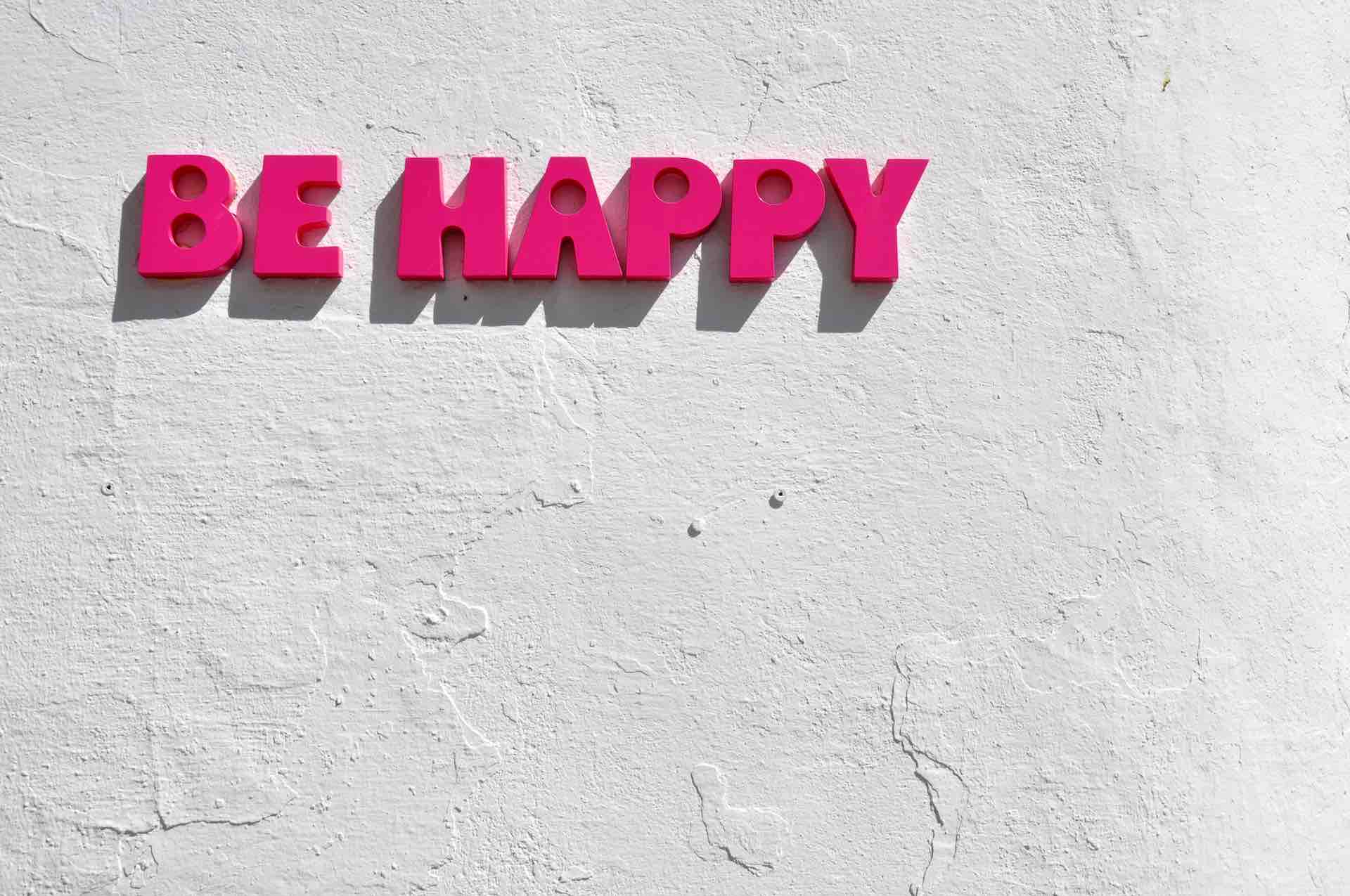
Trust in yourself affects your self-confidence
One of the surest ways to succeed (or fail) in all areas of your life is your worldview, how you perceive things to be. If you feel confident and can make decisions easily and quickly because you trust your intuition, you can soar in life. Trusting in yourself is an integral part of your worldview.
Trusting in yourself is the capacity to make decisions from which you can take action. Not doubting your ability even if the situation or circumstance is something you have never encountered before. People who trust in themselves know they can work through any obstacle.
What a great feeling to have that self-trust that you know you can work through any obstacle in the future.
Self-trust and self-confidence are linked

Trusting in yourself
It seems that if you are confident in your abilities and you’ve learned to trust in your decision-making, then circumstances in life somehow work in your favor more often than not.
People who struggle to trust in their decisions, doubt their abilities to accomplish tasks and are always worried about people’s opinions seem to get hit with more difficulties.
You’ve probably heard or know people who lurch from one disaster to the next. They always appear to make the wrong choice. We all make mistakes, but these people are stuck in a perpetual loop of bad decision-making. Maybe this is you; perhaps you have trust issues with yourself, constantly worrying about the future and feeling insecure.
How do we start building trust in ourselves?

Self-Trust
Well, the good news is that lack of trust in yourself is fixable. You can get to a place where you start trusting in yourself. I know this sounds unlikely, but tell yourself to read to the end of this article before writing this off. If you start doing the steps below, you can turn things around; it is inevitable.
In these tips to help, you’ll learn the steps needed to trust yourself and build a life worth living. It is incredibly powerful knowing deep down that you have developed into a place where you can overcome whatever life throws at you.
Notice our thoughts

Trust in yourself
To build self-trust is easier than you think. If you’re looking to create a new you, someone you can rely on, someone who is trustworthy, somebody you can trust over time, then the first step is to analyze the thoughts that come into your mind. You would think your brain would be naturally encouraging. However it’s completely normal to have an inner voice that keeps telling you harmful and negative thoughts that aren’t helpful or serving you.
Most of us struggle in this area. If you allow your mind to take control of your actions, decisions, and emotions without first understanding why, then you won’t trust yourself. This is the most important area of our life. We cannot let our thought life run on auto-pilot.
We need to work on analyzing our inner voice. Take a deep dive into our thought life.
In a previous article, we spoke about how our thoughts will always tell us things like – we can’t do this, we will fail, we can’t repair that relationship, we aren’t good enough, we aren’t capable, we don’t deserve that, etc. These thoughts make you feel like a failure. There is a section of our brain called the amygdala, and it is only doing its job. It is trying to protect you from harm. It wants to keep you wrapped up in cotton wool.
The amygdala is incredibly powerful and part of the non-conscious or subconscious mind and is linked to your memory. It will CONSTANTLY feed you thoughts it thinks will keep you from harm. These thoughts were probably useful thousands of years ago, but today, we need to be people of action who are taking risks.
Spend some time alone analyzing your thoughts

You can trust yourself
We need to break the habit of these thoughts controlling our actions and emotions. The trick is to develop the ability to ‘listen’ to our thoughts. What is coming into our brain? Can you isolate what your thoughts telling you? You will quickly realize that most of these thoughts are not true. Your brain may be saying, ‘You aren’t good enough’; remember, it is only trying to protect you. It wants to keep you safe.
We need to accept this thought and tell our mind that we hear and are thankful for this thought. Tell ourselves we are grateful our brain is working well and trying to protect us.
Then we need to re-frame the thought. Is it true that you aren’t good enough? Really?
Who are you really?

Self-Trust
The Bible tells us that we are incredible creations and that God has made us unique, a one-off.
You are loved and cared for. God wants the absolute best for your life. Let’s take this accurate framework as our base and re-frame our thoughts. Tell your mind that you are, in fact, good enough. God has made you; he loves you and wants the absolute best for you. Remind yourself that it is not true that you aren’t good enough. You have accomplished many things and will achieve many more things in the future. Even if you have made mistakes, who hasn’t? Keep refreshing yourself that you are capable; you can do this.
God has got your back. The Bible tells us in many places that he has commanded us to be determined and confident, not to be anxious or discouraged.
Do not let your guard down. To build trust in yourself, reframe as many thoughts as you can. Constantly, with all the minutes each day, catch and reframe these thoughts. Your brain learns through repetition. Eventually, if you do not give up and do this day after day, your mind will start returning these truths.
You will wake up one morning, and your mind will be telling you that you can do it; you are well able.
What you say matters, build trust with your mind and your words

How to trust in yourself
It is hard to trust yourself if you’re constantly worrying about what is just around the corner. Low self-trust is fixable. To build up your confidence and help you feel that you can handle the future, having the conviction that you are able is needed. The ability to trust starts with a conscious decision to re-frame your thoughts and your words.
Having the right relationship with our thoughts and words is critical. Have you ever heard some people say they will never be successful, they will never be able to run that race, they are terrible parents, etc.?
These people have issues with self-trust. If you need a way to improve trusting yourself, then be careful what is coming out of your mouth. Practice self-discipline in this area of your life. Use words that build your confidence, even if you don’t fully believe them. As long as they are true, they will help you learn to trust your abilities.
Trusting yourself depends on how you view yourself

Trusting in yourself and the truth
James Clear gives a fascinating exercise. Get two sheets of paper. The only rule of this exercise is that you can’t tell any lies. You will be writing about the last ten years of your life. Write the least favorable version of your previous ten years on the first sheet of paper. On the second piece of paper, write down the most optimistic version of the last ten years of your life.
If you look at the two sheets of paper, there are no lies on either one of them. Both sheets of paper are accurate.
But they are very different. What does it help you tell yourself about the first version? Ask yourself what does that get you? That self-criticism is not helpful. If you are not ignoring reality, you are sticking with the facts; then you might as well tell yourself the most empowering version.
Let’s take the second version; focusing on the most favorable interpretation of the last ten years of your life will help you remember the better you and help build your confidence. As we said at the beginning of the article, your worldview and how you perceive the world will determine your success in the world. If you focus on the negative, and your words are negative, guess what type of life you will have?
Why not start to make a little space for the good things in life? Start to build a positive mindset and perception of yourself (based on truth).
List the things you like or want in life

How to trust yourself
While you are fighting the good fight of getting your thought life under control, the next step to trusting in yourself is to determine a heading for yourself. Who do you want to be, what do you want to achieve?
It’s all too easy in life to coast through, not upset the apple cart too much, saying yes to everything and anything. A rudderless life tends to leave you feeling overwhelmed as life’s waves come crashing in. You aren’t sure what you want or how to achieve it. Many people struggle with knowing what they want. How can you trust yourself if you don’t even know what you want?
Self-confidence and trust in yourself partly come from knowing where you are headed. Make a list of what you want to achieve in the next year – read this article if you’re going to set out your goals appropriately.
Set some big goal, and aim high. Then, break this down into smaller goals along the way. More specifically, set up some daily tasks you need to do every single day to achieve your one-year goal. These are called your daily disciplines.
Learn how to trust in the daily disciplines

Self-compassion and trusting yourself
Then stop worrying about your one-year goal and concentrate on the daily disciplines. Train your mind, spirit, and body to focus on the daily disciplines. Do the daily disciplines. Start small if needed, but set up some daily tasks you know, if followed religiously, will give you the best chance to hit the one-year goal if you practice these every day.
Remind yourself that you can achieve your goal only because of the daily disciplines. If you start accomplishing the daily disciplines, if you do the small things you need to do every day, you begin to trust in yourself. Regardless of the outcome, if you can do the daily disciplines, you become a person of discipline.
If you have discipline, you begin a strange process of becoming competent and trustworthy. Even though you might not notice this change, eventually, it will be undeniable. You will have started to develop a very strong self-trust. Somehow, you begin to see change in all areas of your life. You expect more of yourself; you begin cutting out wrong decision-making.
What a blessing discipline brings.
Start to trust in yourself by getting back up

Spend time alone
One of the most incredible acts of self-compassion is learning how to get back up when you mess up. Say you have set a one-year goal for yourself, and achieving this goal means you have decided to get up two hours earlier each morning. If you don’t get up for whatever reason, you miss a day or two; don’t lose trust in yourself or beat yourself up.
Self-flagellation robs you of the day’s joy and doesn’t serve you. The most successful people who have ever lived have learned this one skill. Get very good at getting back up. You will mess up sometimes, but that’s okay. You’re looking to build a new life; it is a marathon. Next time you make a lazy or bad decision, immediately put it behind you. If you mess up today or tomorrow, get back at it.
This is a skill, and once learned, it will make an incredible difference in your life.
Conclusion
Trusting in yourself
This skill is such a meaningful way to build self-trust. Control your self-talk, keep the daily disciplines, and get back up quickly if you fall. It sounds too simple, right?
These techniques are simple but need practice and work to improve your life. These concepts will help you achieve the change you are looking for. Imagine how powerful it must be when you trust who you are. You trust that you will make intelligent and wise decisions. Bring each day to God, ask for guidance and help with your thought life, and then get stuck into those daily disciplines.
It won’t be long before you can trust in you.
I have found that learning new skills is one powerful answer to a happier life. Learning how to easily bring in more money each week, has helped me immensely. Options must be one of the easiest ways to take control of your money. Learning how to use options to manage my finances instead of handing over the responsibility to a money manager has been liberating. If you own shares and want to learn how to make additional money from the shares you already own, each and every week, with no risk, then options is for you.
Click below for a FREE ‘Options for Beginners course.’
Start to learn how to manage your own money.


